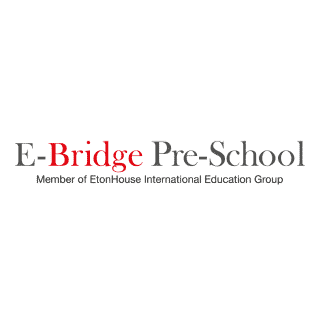S hortly after meeting Guan Yu in her new class, preschool educator Nurul Asyiqin Hasim from E-Bridge Pre-School Upper Serangoon noticed that the four-year-old needed a little extra support.
A sweet and affectionate boy who enjoys helping others, Guan Yu had trouble with certain everyday tasks such as putting on his shoes, buttoning his shirt and drawing. He also occasionally needed support when interacting with peers, but it never stopped him from trying to join in and play with them.
Based on her training and with over four years of experience working as an early childhood educator, Ms Asyiqin knew it would take more than solid pedagogy and savvy classroom management skills to address Guan Yu's developmental challenges. It would require a close partnership with his parents to ensure he received timely interventions and consistent support both at home and in school.

BREAKING THE ICE
“One of the initial challenges was the language barrier between me and Guan Yu's grandparents, who were his main caregivers for drop-offs and pick-ups,” Ms Asyiqin shared. “It made it harder to share updates or initiate meaningful conversations.”
With help from colleagues who translated for her, Ms Asyiqin began building rapport with his grandparents by sharing short, positive stories about Guan Yu's day in school. She also used the school's communication app to reach out to his parents, sending them photos and anecdotes of Guan Yu participating in classroom learning experiences and interacting with his peers.
Once trust was established, Ms Asyiqin began sharing detailed updates, observations and her concerns about his development. She also asked about Guan Yu's behaviour at home to gain a fuller picture of how best to support him. Mindful that too many updates can overwhelm parents, Ms Asyiqin made sure to space out her messages and kept them measured to avoid causing unnecessary alarm.
Over time, she and Guan Yu’s parents began noticing similar patterns in his development. This shared understanding allowed them to exchange tips and ideas on practical strategies to implement in the classroom and at home. His parents tried out Ms Asyiqin’s suggestions where possible and would let her know what worked.
PARTNERS IN PROGRESS
When Guan Yu moved up to K1 the following year, Ms Asyiqin approached Guan Yu’s parents to discuss enrolling him into the Development Support-Learning Support (DS-LS) programme, which offers early intervention for five- and six-year-olds with mild developmental needs.
“Because of the relationship and mutual trust we had built, Guan Yu’s parents were quick to support our recommendation,” Ms Asyiqin said. “His intervention only started recently, but already we can see him trying his best to follow and complete the learning projects. His confidence is growing, and we’re hopeful that he will continue to make meaningful progress.”


“Their transparency and willingness to work closely with us reflected the trust they had in our professional guidance.
According to Ms Asyiqin, regular communication is key - and not just when challenges arise. “Teachers should also share happy moments and celebrate small successes to give parents a more complete picture of how their child is doing in school,” she said.
When it comes to sensitive conversations, Ms Asyiqin says she prefers face-to-face discussions and phone calls over text messages. “These modes of communication are more genuine and allow for a more open and respectful exchange,” she explained.

Thanks to Ms Asyiqin’s unwavering support, Guan Yu has made remarkable progress. He now speaks with confidence, expresses his thoughts clearly, responds well, jumps with joy and writes with pride. To new parents, my advice is this: building trust with your child’s teacher starts with openness and mutual respect. When you see the teacher as a partner in your child’s development, it makes working together much easier.”

“From the start, Ms Asyiqin built a strong foundation of trust through consistent, honest and thoughtful communication,” said Ms Clare Yip, parent of Jedaiah Patrick, who is in K1. “Her updates go beyond describing what he does in class - they show how he’s feeling, what excites him and the challenges he may be facing. She notices the small details and responds to his behaviour with genuine curiosity.”
THE FRUITS OF PARTNERSHIP
With consistent support at home and in school, Guan Yu has become more independent with tasks like getting dressed and putting on his shoes. He is confident and engaged in school and continues to greet his teachers with warm hugs, which brighten up their days.
Ms Asyiqin encourages parents to connect with their child’s teachers beyond school matters. “Start conversations and take the opportunity to get to know them personally. Building trust is about taking time to understand each other,” she said.
She added: “As educators, we genuinely want the best for your child, and we take great joy in seeing them grow and thrive. Working together as a team makes the journey even more rewarding.”
E-Bridge Pre-School






















